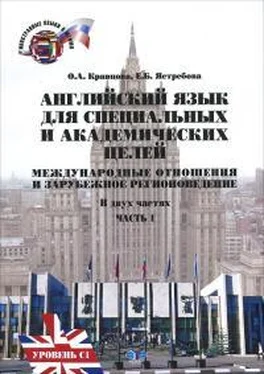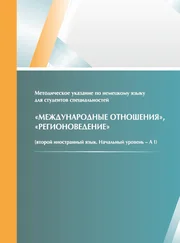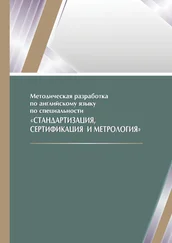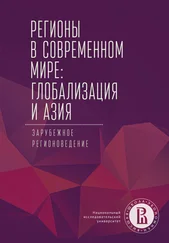5. Is there a negative side to any of the other values cited by the students?
Speak Up
DISCUSSION QUESTION
How do you think the values mentioned in the video affect the American society?
READING 1
PRE-READING QUESTIONS
1. How do you understand the term the “American dream”?
2. What basic values underpin the American dream?
3. Is there a downside to these values?
Scan the text to find out whether your opinion coincides with that of the author.
THE VICES OF OUR VIRTUES The American Creed 24 24 Creed — a summary of articles of religious beliefs, any system of beliefs or principles.
is what makes us great as a nation — and also what fosters some big problems
By Robert J. Samuelson
March 11, 1996 — Newsweek http://www.newsweek.com/vices-our-virtues-175908
I am proud to be an American; most of us are. Our patriotism is fierce, if often quiet. A recent Gallup poll asked respondents in 16 countries whether they would like to live elsewhere. Americans finished almost last. Only about 11 percent of us would move. By contrast, 38 percent of Britons, 30 percent of Germans, 20 percent of Japanese and 19 percent of Canadians would. Why, then, are
Unit II. US: from Democracy to Empire?
Unit II. US: from Democracy to Empire?
we so mad at our leaders and society? One neglected answer is this: America's glories and evils are tightly fused together.
The things that we venerate about America — its respect for the individual, its opportunity, its economic vitality, its passion for progress — also breed conditions that we despise: crime, family breakdown, inequality, cynicism, vulgarity and stress, to name a few. Naturally optimistic, Americans reject any connection between our virtues and vices. We refuse to see, as sociologist Seymour Martin Lipset argues in an important new book, that “seemingly contradictory aspects of . . . society are intimately related.” 1
But they are, and in an election year, the relationship is highly relevant. Only by grasping it can we keep our perspective on the campaign's inevitable excesses. Already, we are deluged with anguished analyses of our faults and vast schemes for self-improvement. Both exaggerate our problems and our capacity to cure them; some national conditions aren't easily changed.
The American Creed — our distinct set of values — blends freedom, individualism and egalitarianism. This mix has fired economic advance. Why do we lead the world in computers? The answer is mostly culture. We love to create, experiment and tinker. We are the land of Apple Computer and Netscape. Every year, more than 600,000 new businesses incorporate. We have the largest global pool of venture capital. But the same emphasis on individual striving, success and liberty can also inhibit social control and loosen people's sense of communal obligation.
Crime becomes just another path to “making it.” Divorce rises if marriage seems to imperil selffulfillment. Because we worship individual effort, we are more tolerant of failure and inequality than other nations. In 1987, a poll asked whether “government should provide everyone with a guaranteed basic income.” Only 21 percent of Americans agreed — about a third of the number of Germans (56 percent) or Britons (61 percent). Naturally, our welfare state palls 25 25 “American Exceptionalism: A Double-Edged Sword”, 1997
26 26 To pall — to become less appealing or interesting
next to theirs. Nor should we be surprised that:
Among advanced societies, we are the richest — and the most unequal. In 1995, Americans' incomes averaged roughly 20 to 30 percent above those of Europe and Japan. But the richest 90th percentile 27 27 Percentile — a) in statistics any of 99 points at which a range of data is divided to make 100 groups of equal size; b) any of these groups.
of Americans have incomes nearly six times higher than the poor at the 10th percentile. In Germany, the same ratio is 3 to 1; in Canada and Italy, it's about 4 to 1.
We have the most successful democracy — and among the lowest voter turnouts. In the Gallup poll, more Americans (64 percent) were satisfied with democracy than people anywhere else. Canadians (62 percent) were closest; Britons (40 percent) and Japanese (35 percent) were well behind. Yet, in nonpresidential elections, less than half of eligible Americans vote.
Although decidedly moralistic, we have one of the world's most violent societies. In 1990, the American murder rate was more than twice as high as Germany's and nine times higher than Japan's.
Contradictions abound. “Concern for the legal rights of accused persons and civil liberties in general is tied to opposition to gun control and difficulty in applying crime-control measures,” writes Lipset. Naturally, Americans are among the world's most gun-owning peoples. In 1993, 29 percent of U.S. households had handguns, compared with 5 percent of Canadian and 2 percent of Australian.
To some extent, the proof that our virtues and vices are connected comes from abroad, where the advance of American values has created a natural experiment in social change. The loosening of tight social controls in Russia, China and South Africa has led to more freedom — and crime. In Europe and Japan, prosperity and the celebration of individuality have coincided with more divorce and crime. Between 1970 and 1991, divorce rates rose 40 percent in Germany and 50 percent in Japan (though both remain well below U.S. levels).
The American Creed was already well established by the 1830s, when Alexis de Tocqueville first described it. Even in Colonial times, America was less rigid socially than Europe. Land was a great leveler. In America, most farmers owned it; in England, 60 percent of the population didn't. Still, Colonial America brimmed with hereditary privileges and arbitrary power. In a 1992 book, historian Gordon S. Wood of Brown University argued that the decisive break occurred during the Revolution itself, which created a social and intellectual upheaval.
Loyalists decamped to Canada, which (like Europe) remained a more deferential, communal and paternalistic 28 28 Paternalism — a policy or practice of treating or governing people in a fatherly manner, especially by providing for their needs without giving them rights or responsibilities
society. But in America, the legitimacy of unchangeable social distinctions collapsed. Jefferson said that men would advance based on “virtue and talent,” and not on birth. The Revolution “made the interests and prosperity of ordinary people — their pursuit of happiness — the goal of society and government,” wrote Wood.
The resulting mind-set often means disappointment and division. All authority is suspect, because it elevates some over others and triggers an inbred distrust of “aristocracy” — now “elites” or callous CEOs. Popular culture is democratic and, therefore, sometimes shallow and offensive. Talk radio and trash TV are only new expressions of old impulses. Progress is never sufficient, because happiness — though constantly pursued — can never be guaranteed. Politicians fall short of the ideals that we (and they) set: one reason why we attack them even while admiring our system.
The election will expose these contradictions but not dispose of them. It's great to be an American, but we are burdened as well as blessed by our beliefs. That defines the American Drama.
Notes
1. Gallup poll — assessment of public opinion by questioning a representative sample of people, esp. in order to forecast voting at an election. Gallup polls are named after the American statistician, George Horace Gallup, who invented them.
Читать дальше












